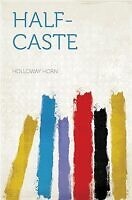The Lie by Holloway Horn
 the lie by holloway horn
the lie by holloway horn
The Lie by Holloway Horn was first published in Harper’s Bazar in 1921 and later appeared in the May 1922 copy of The Blue Magazine.
The Lie by Holloway Horn

The Lie by Holloway Horn
The hours had passed with the miraculous rapidity which tinctures time when one is on the river, and now overhead the moon was a gorgeous yellow lantern in a greyish purple sky.
The punt was moored at the lower end of Glover’s Island on the Middlesex side, and rose and fell gently on the ebbing tide.
A girl was lying back amidst the cushions, her hands behind her head, looking up through the vague tracery of leaves to the soft moonlight. Even in the garish day she was pretty, but in that enchanting dimness she was wildly beautiful. The hint of strength around her mouth was not quite so evident perhaps. Her hair was the colour of oaten straw in autumn and her deep blue eyes were dark in the gathering night.
But despite her beauty, the man’s face was averted from her. He was gazing out across the smoothly-flowing water, troubled and thoughtful. A good-looking face, but not so strong as the girl’s in spite of her prettiness, and enormously less vital.
Ten minutes before he had proposed to her and had been rejected.
It was not the first time, but he had been very much more hopeful than on the other occasions.
The air was softly, embracingly warm that evening. Together they had watched the lengthening shadows creep out across the old river. And it was spring still, which makes a difference. There is something in the year’s youth — the sap is rising in the plants — something there is, anyway, beyond the sentimentality of the poets. And overhead was the great yellow lantern gleaming at them through the branches with ironic approval.
But, in spite of everything, she had shaken her head and all he received was the maddening assurance that she “liked” him.
“I shall never marry,” she had concluded. “Never. You know why.”
“Yes, I know,” the man said miserably. “Carruthers.”
And so he was looking out moodily, almost savagely, across the water when the temptation came to him.
He would not have minded quite so much if Carruthers had been alive, but he was dead and slept in the now silent Salient where a little cross marked his bed. Alive one could have striven against him, striven desperately, although Carruthers had always been rather a proposition. But now it seemed hopeless — a man cannot strive with a memory. It was not fair — so the man’s thoughts were running. He had shared Carruthers’ risks, although he had come back. This persistent and exclusive devotion to a man who would never return to her was morbid. Suddenly, his mind was made up.
“Olive,” he said.
“Yes,” she replied quietly.
“What I am going to tell you I do for both our sakes. You will probably think I’m a cad, but I’m taking the risk.” He was sitting up but did not meet her eyes.
“What on earth are you talking about?” she demanded.
“You know that — apart from you — Carruthers and I were pals?”
“Yes,” she said wondering. And suddenly she burst out petulantly. “What is it you want to say?”
“He was no better than other men,” he replied bluntly. “It is wrong that you should sacrifice your life to a memory, wrong that you should worship an idol with feet of clay.”
“I loath parables,” she said coldly. “Will you tell me exactly what you mean about feet of clay?” The note in her voice was not lost on the man by her side.
“I don’t like telling you — under other conditions I wouldn’t. But I do it for both our sakes.”
“Then, for goodness sake, do it!”
“I came across it accidentally at the Gordon Hotel at Brighton. He stayed there, whilst he was engaged to you, with a lady whom he described as Mrs. Carruthers. It was on his last leave.”
“Why do you tell me this?” she asked after a silence; her voice was low and a little husky.
“Surely, my dear, you must see. He was no better than other men. The ideal you have conjured up is no ideal. He was a brave soldier, a darned brave soldier, and — until we both fell in love with you — my pal. But it is not fair that his memory should absorb you. It’s — it’s unnatural.”
“I suppose you think I should be indignant?” There was no emotion of any kind in her voice.
“I simply want you to see that your idol has feet of clay,” he said, with the stubbornness of a man who feels he is losing.
“What has that to do with it? You know I loved him.”
“Other girls have loved — ” he said bitterly.
“And forgotten? Yes, I know,” she interrupted him. “But I do not forget, that is all.”
“But after what I have told you. Surely — ”
“You see I knew,” she said, even more quietly than before.
“You — knew?”
“Yes. It was I who was with him. It was his last leave,” she added thoughtfully.
And only the faint noise of the water and the wistful wind in the trees overhead broke the silence.
About Holloway Horn
Holloway Horn (Alfred John Holloway Horn) was an British writer, born in 1886 in Oxfordshire, England. He published a number of books between 1917 and 1948 such as The Neglected Fire, Half-Caste and The Folly of Innocence. Also he wrote short stories, notably The Lie, The Man from Cincinnati and The Old Man.
His work is quite rare to find other than the novel Half-Caste and a few of his short stories available online. He died in 1967 at the age of 81.
Holloway Horn Books to Read
If you enjoyed The Lie by Holloway Horn, check out The Mysterious Mansion by Honoré De Balzac
Narrated by David Wales, courtesy of Libravox.org













One thought on “The Lie by Holloway Horn”
Comments are closed.